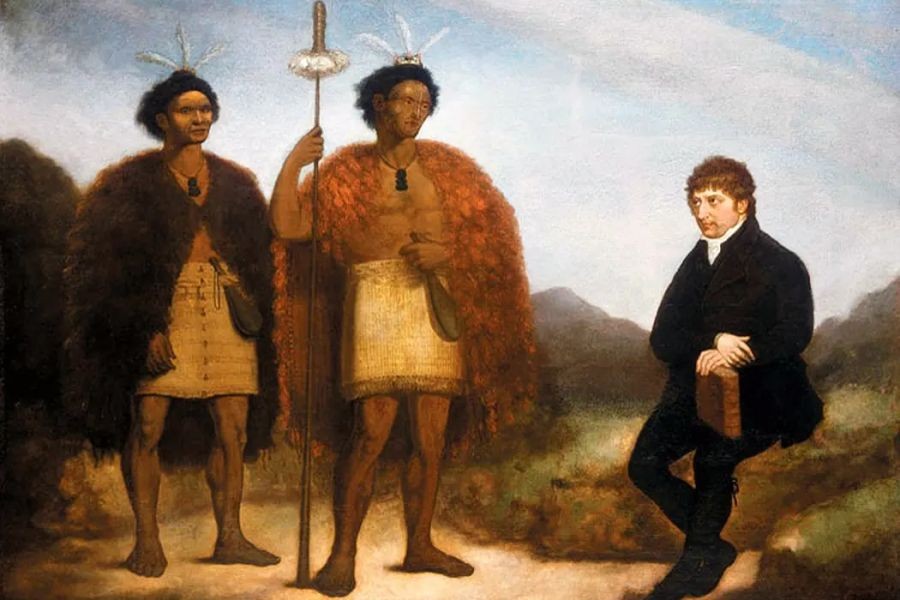The early history of New Zealand is marked by a significant cultural collision between the indigenous Maori and the European settlers, known as Pakeha. This intersection of cultures not only shaped the social and political landscape of the country but also laid the foundation for contemporary New Zealand society and economy. Understanding this historical context is crucial for management consultants and business leaders who navigate the complexities of cultural diversity in modern New Zealand. This article explores the dynamic between Maori and Pakeha, emphasizing the lessons that can be drawn for today's business environment.
The Arrival of the Pakeha and Initial Interactions
The arrival of the first European settlers in New Zealand in the late 18th century heralded a new era for the indigenous Maori population. Initially, interactions between the two groups were driven by trade and mutual curiosity. Europeans sought natural resources and trade opportunities, while Maori were interested in European goods such as metal tools and weapons. This exchange led to significant socio-economic changes within Maori communities, including shifts in power dynamics and the introduction of new technologies.
Case Study: The Musket Wars
The introduction of muskets by European traders exemplifies the profound impact of cultural exchange. The Musket Wars, a series of inter-tribal conflicts fueled by access to firearms, marked a period of significant upheaval for the Maori. Tribes that acquired muskets gained a substantial advantage over those that did not, altering traditional power structures and territorial boundaries. This period illustrates how external influences can rapidly transform indigenous societies, offering a cautionary tale for modern businesses about the unintended consequences of technological adoption.
The Treaty of Waitangi: A Turning Point
Signed in 1840, the Treaty of Waitangi is often considered the founding document of modern New Zealand. It was intended to establish a framework for governance and the protection of Maori rights. However, differing interpretations of the treaty's text have led to long-standing grievances and disputes. For example, the Maori version emphasized governance rights, while the English version suggested full sovereignty transfer to the British Crown.
Impact on Contemporary Business Practices
The legacy of the Treaty of Waitangi continues to influence business practices in New Zealand. The emphasis on partnership and consultation between Maori and Pakeha is reflected in New Zealand's unique approach to corporate governance. Many companies now include Maori representation in their boards and decision-making processes, recognizing the importance of cultural inclusivity. This model can serve as a valuable reference for other multicultural societies aiming to integrate indigenous perspectives into corporate strategies.
Economic Implications: Lessons for Modern Businesses
The early interactions between Maori and Pakeha had significant economic implications that resonate with today's business world. The introduction of European agricultural practices, for instance, transformed the Maori economy and laid the groundwork for New Zealand's thriving agricultural sector. According to Stats NZ, agriculture remains a cornerstone of the New Zealand economy, contributing significantly to GDP and employment.
Industry Insight: The Dairy Sector
New Zealand's dairy industry, a key component of the agricultural sector, exemplifies the successful integration of Maori and Pakeha economic practices. Maori-owned agribusinesses have become prominent players in this industry, combining traditional stewardship of the land with modern farming techniques. This synergy highlights the potential for cross-cultural collaboration in driving economic growth and innovation.
Common Myths and Misconceptions
- Myth: The Maori were passive recipients of European influence.
- Reality: Maori actively engaged with European settlers, adapting and incorporating new technologies and ideas to maintain their autonomy.
- Myth: The Treaty of Waitangi resolved all land disputes.
- Reality: Land disputes persisted long after the treaty, leading to the establishment of the Waitangi Tribunal to address historical grievances.
- Myth: Cultural integration was smooth and harmonious.
- Reality: The integration process was fraught with conflict and negotiation, requiring ongoing efforts to achieve true reconciliation.
Future Trends and Predictions
As New Zealand continues to evolve, the relationship between Maori and Pakeha will remain a critical factor in shaping the nation's future. With increasing recognition of Maori rights and cultural contributions, businesses can expect a greater emphasis on partnerships that prioritize mutual benefit and respect. According to the Ministry of Business, Innovation and Employment (MBIE), initiatives promoting Maori economic development are expected to play a significant role in New Zealand's growth strategy over the coming decade.
Conclusion
The historical dynamics between Maori and Pakeha offer valuable insights for today's business leaders. Understanding the complexities of this cultural clash can inform strategies that prioritize inclusivity, innovation, and sustainable growth. As New Zealand moves forward, embracing its rich cultural heritage will be key to unlocking new opportunities and achieving a more equitable and prosperous future.
People Also Ask (FAQ)
- How does Maori culture influence New Zealand businesses? Maori culture emphasizes community and sustainability, encouraging businesses to adopt inclusive and eco-friendly practices that enhance long-term success.
- What was the significance of the Treaty of Waitangi? The Treaty of Waitangi established a framework for governance and Maori rights, influencing contemporary policies that promote cultural inclusivity and partnership.
- How do New Zealand businesses incorporate Maori perspectives? Many businesses include Maori representation in decision-making processes and prioritize partnerships that respect Maori values and traditions.
Related Search Queries
- Maori and Pakeha cultural interactions
- Treaty of Waitangi business impact
- Maori economic development strategies
- Cultural inclusivity in New Zealand businesses
- New Zealand agricultural sector growth
- Maori representation in corporate governance
- Historical land disputes in New Zealand
- Maori and Pakeha economic collaboration
Understanding the complexities of Maori and Pakeha interactions offers invaluable lessons for management consultants and business leaders. Whether you're navigating cultural diversity or seeking innovative growth strategies, the past holds key insights for shaping a successful future. Embrace the heritage of New Zealand, and let it guide your business endeavors toward sustainable and inclusive growth.
































michelinemcqui
11 months ago